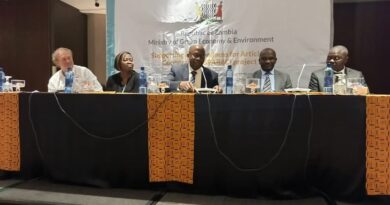HRC Defends Freedom of Expression Amid New Cybercrime Laws
The Human Rights Commission (HRC) has urged the public to exercise their right to freedom of expression without fear, following the enactment of the Cyber Security Act No. 3 of 2025 and the Cyber Crimes Act No. 4 of 2025.
The Commission noted that while these laws have caused apprehension about possible restrictions on free speech, they are designed to combat cybercrime and promote a safe, inclusive cyberspace.
Spokesperson and Director of Education, Training and Advocacy, Mweelwa Muleya, said the Commission recognizes that the new cyber laws align with the United Nations Convention against Cybercrime, adopted by the UN General Assembly on 24th December 2024.
The laws seek to prevent cyber offenses that can facilitate transnational organized crimes such as terrorism, trafficking in persons, smuggling of migrants, drug trafficking, and money laundering, which have severe social and economic impacts.
Muleya emphasized that the enforcement of these laws must not violate fundamental human rights, including freedom of expression, which is vital for constitutionalism, the rule of law, and other human rights protections.
“The Government and state actors must ensure that cyber laws are enforced lawfully, proportionally, and consistent with international human rights obligations,” he said.
The HRC also highlighted that the UN Convention explicitly prohibits any interpretation of cyber laws that suppress human rights or fundamental freedoms. The Commission called on the government to balance its duty to prevent cybercrime with the obligation to respect digital rights.
Muleya reminded all citizens that the right to freedom of expression and privacy is subject to lawful restrictions aimed at protecting national security, public order, public health, morals, and the rights and reputations of others.
“We urge everyone to enjoy their digital rights freely while refraining from misusing cyberspace to commit crimes or abuse others’ rights,” he said.
The Commission reaffirmed that where violations occur, mechanisms exist to hold perpetrators accountable and provide remedies for victims in accordance with due process and equal protection under the law.



